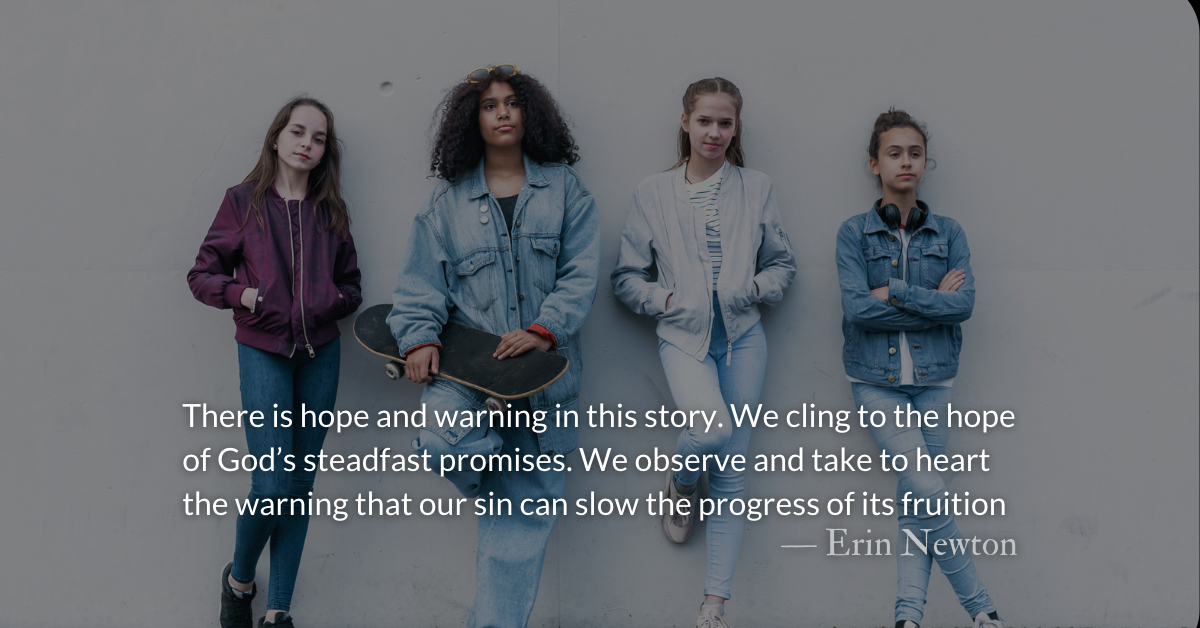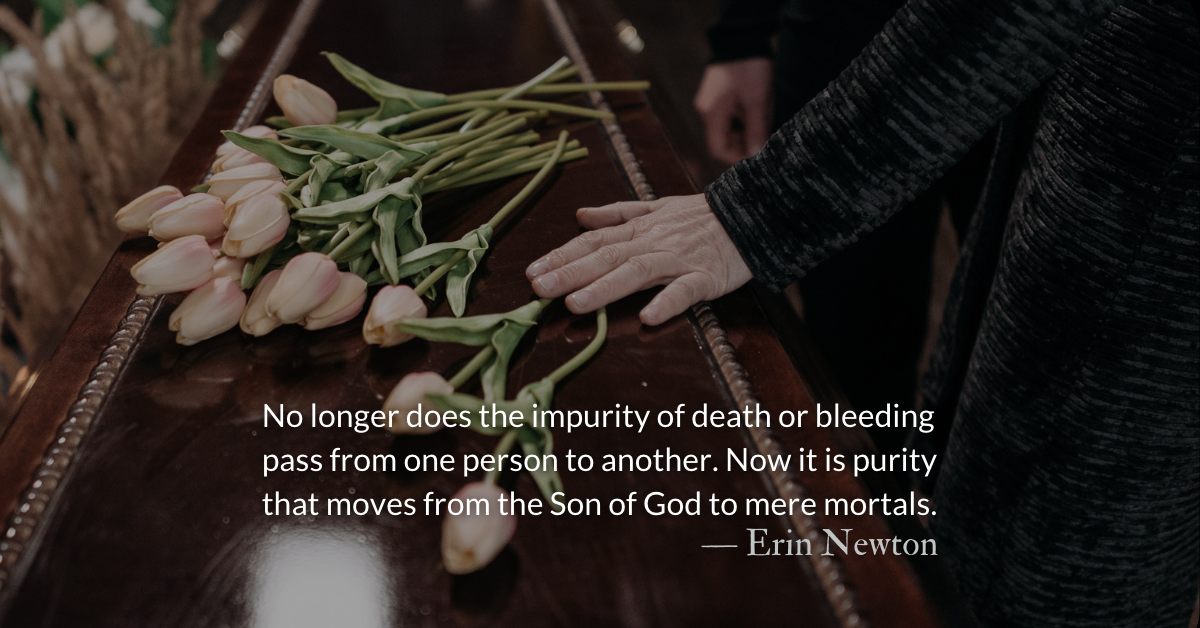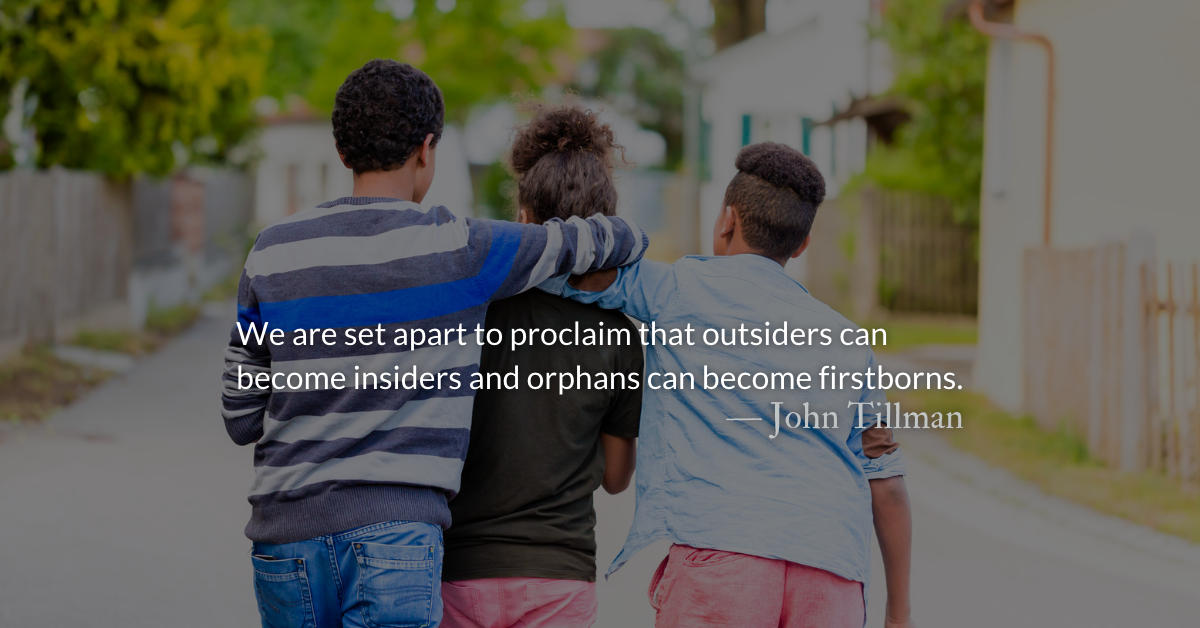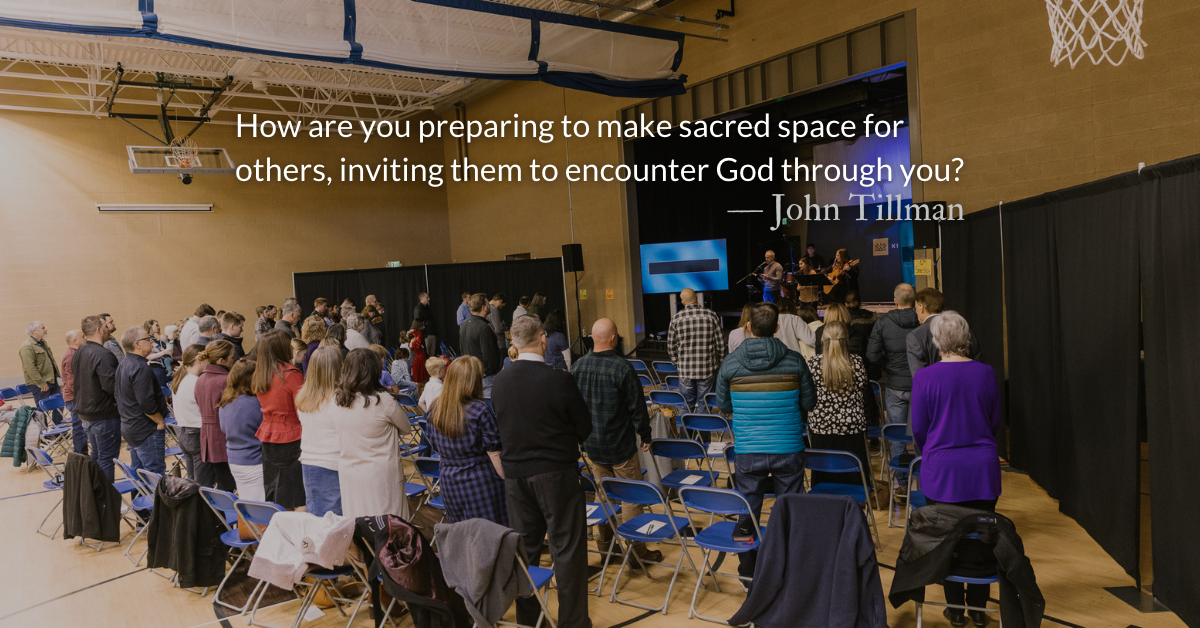Scripture Focus: Numbers 26:2, 63-65
2 Take a census of the whole Israelite community by families—all those twenty years old or more who are able to serve in the army of Israel.”
63 These are the ones counted by Moses and Eleazar the priest when they counted the Israelites on the plains of Moab by the Jordan across from Jericho. 64 Not one of them was among those counted by Moses and Aaron the priest when they counted the Israelites in the Desert of Sinai. 65 For the Lord had told those Israelites they would surely die in the wilderness, and not one of them was left except Caleb son of Jephunneh and Joshua son of Nun.
Reflection: Faith of a New Generation
By Erin Newton
We return now to the reason they titled the book, “Numbers.” The book opened with a census and now they count again. The author notes this generation was not part of the original group at Sinai. That generation died as a consequence of their rebellion.
A new generation grew up in the wilderness. Amazingly, the census total in Chapter 26 is only a few thousand less than the census total in Chapter 1—yet an entire generation was gone.
The pages between these chapters are filled with stories of rebellion, opposition, attempted mutiny, and disobedience. The earth opened and fire rained down. There were venomous snakes and a talking donkey. It was, to say the least, a tumultuous time.
The sins of the people resulted in a myriad of curses and disciplines. God did not turn a blind eye to corruption. There was a cost to their sin. Despite all the punishments, their numbers did not wither. The great nation promised to Abraham continued to flourish against the odds. Gordon Wenham highlights this truth, “God’s promises to the patriarchs may be delayed by human sin, but they are not ultimately frustrated by it.”
Delayed but not frustrated. These promises are not defeated by human sin because they are held and guarded by God himself. No human hand, no human sin, can thwart the promises of God.
The younger generation in the wilderness watched their elders rebel, complain, and sin until they were all gone. What could have been enjoyed by the elders passed on to the new generation.
There is hope and warning in this story. We cling to the hope of God’s steadfast promises. We observe and take to heart the warning that our sin can slow the progress of its fruition.
We do not know how the younger generation felt about entering the land without their elders. Perhaps they were encouraged to do things differently, to do things right. After watching the mistakes made by their parents or grandparents, they refined their faith and purified its practice.
Many young Christians today are openly critical of the faith of older generations. Young believers point to issues such as racism, hypocrisy, violence, political idolatry, misogyny, abuse, or apathy for the vulnerable.
Identifying the spiritual and social flaws of the past is important. By such retrospection, new generations may follow God’s lead with faith refined.
Divine Hours Prayer: The Call to Prayer
Let us make a vow to the Lord our God and keep it; let all around him bring gifts to him who is worthy to be feared. — Psalm 76.11
– From The Divine Hours: Prayers for Springtime by Phyllis Tickle.
Today’s Readings
Numbers 26 (Listen 7:47)
2 Thessalonians 3 (Listen 2:16)
Read more about Work, Ministry, and Generosity
The Park Forum is a bi-vocational ministry. We are so thankful for our donors who continue to make this ministry possible.
Read the Bible With Us
Where will a journey through the Bible take your faith in the coming year? Read with us at a sustainable pace. Subscribe and invite friends to join you.






